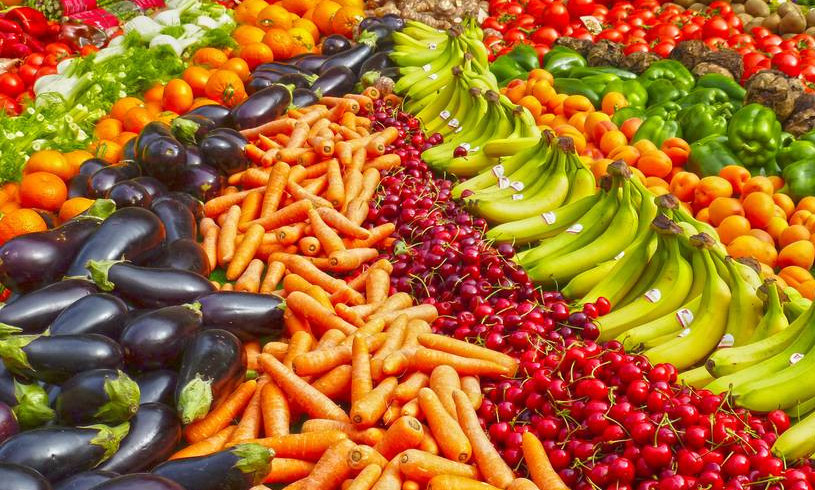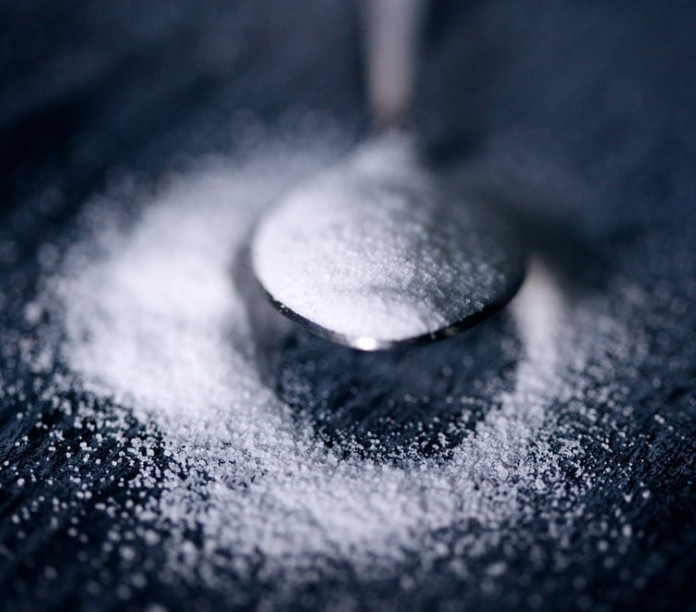Sugar was first found in the sub-continent of India. Sugar was a very pricey commodity back in the days. It was one of the most traded goods during the European colonization. Today, sugar is labeled as being a sweet poison. There are numerous studies that say sugar is not healthy for anyone. Is sugar healthy or not? Are there different kinds of sugar to consume and benefit from? I will discuss more about the witch hunting on sugar.
Table/processed sugar is the worst kind to consume.
Sugar in different forms
When most of us think of sugar, we think of it in granules form. But in fact there are many forms of sugar.
Take a look below.
The Chemistry kinds of sugar are: Monosaccharide(Fructose, Galactose, Glucose, Xylose), Disaccharide(Lactose, Maltose, Sucrose, Trehalose), Free sugars, Reducing sugars.
There are different sources of sugars like: Agave nectar, Birch, Coconut, Dates, Honeydew, Palm, Naples, Sugar beets, Sugar cane.
Others as follows are sold in products.
Syrup sugar forms are: Candi Sugar, Cheong(Korean variations), Corn syrup, Glucose syrup, Golden syrup, High-fructose corn syrup, High-maltose corn syrup, Honey, Inverted sugar syrup, Kuromitsu, Maple syrup, Molasses, Pine Honey, Steen’s cane syrup, Treacle.
The solid forms of sugar are: Brown, Chancaca, Crystalline fructose, Gelling, Gula melaka. Jaggery, Misri, Mizuame, Molasses sugar, Muscovado, Nib, non-centrifugal cane sugar, Panela, Plantation Reserve, Powdered, Preserving, Sucanat, Sugar candy, Sugar glass, Sugarloaf, Wasanbon, White sugar.
Here are some other forms of sugar: Caramel, Cotton candy floss, Maple sugar foods, Rum, Sugar alcohol, Sugar confectionery, Sugarcane juice,Tuzemák, Unrefined sweeteners.
What did the study say?
There are over 8,000 studies done on sugar with the impact it plays on health. Sugar is linked to various health diseases such as diabetes, heart, and liver. There was a study done on added fructose which is the most common kind of sugar. When you consume added fructose, overtime it can be toxic to the liver just like alcohol.
Apart from these, scientist are putting the pieces together for the connection between sugar and chronic diseases by focusing on a set of underlying metabolism issues as risks increased.
It has been calculated that the average person in the U.S. consumes about 66lbs of added sugar per year. That’s a lot! When you factor in all the sodas, sports drinks or energy drinks, an average person’s sugar intake can add up. If you look at the packaged foods in every supermarket, you will see that most of the sugar intake will come from them.
You have to keep in mind that it doesn’t matter if the foods,( mostly savory ones) are marked healthy or not, as long they have added or processed sugar of any kind, the sugar intake can add up. I can see why the trend for labeling sugar as a “sweet poison”.
But that’s not the total number of sugar consumption from added or processed and natural sources. If you were to total the amount of processed or added sugar and the sugar from natural foods that number would reach to an average of 150lbs plus of sugar consumption per year per person. That’s crazy isn’t it?
Is sugar healthy or not?
This is a question that should be taken into consideration. When I talk about sugar, I am referring to table sugar, refined sugar, added sugar or processed in most cases. One of the most common sugar like fructose, is found in fruits. The point is that the fruits have fiber which help manage the sugar by slowing down the rate absorption into the body.
Potatoes, beets, yams, carrots, and other rooted vegetables also have natural fructose in them, but they have more nutritional value than those found in fruits and definitely more than the added fructose or processed sugar. I guess not all fructose are the same. LOL!
Processed foods have the highest content of added sugar which mostly contain high-fructose corn syrup and processed sucrose. You would want to stay away from these.
Yes, sugar or simple sugar can be healthy for you if you get them from fruits, vegetables, beans, nuts, and whole grains. The reason for getting them from these foods is because they take longer to get to the digestive system. Simple sugar that are processed will get absorbed very fast and that is why when people eat processed simple sugar, they get what is known as “a sugar rush”. However, it is best to get them from mostly vegetables, beans, nuts or whole grains.
Fruits have a higher content of fructose, so you would want to put a limit on them. Too much can be a problem, especially for people who have diabetes.

It is best to get your sources of sugar from more vegetables and fruits.
Can you benefit from sugar?
Sugar can be beneficial to someone’s health. As long as you are getting the sugar from vegetables, beans, nuts, whole grains, and fruits(limited), you can benefit from them as mentioned above. You see, the different types of sugar in these foods groups as listed, have nutritional value such as vitamins, minerals, phytochemicals, fibers, and water to provide a more wholesome connection. Added or processed sugar without their wholesome counter parts, is where the danger lies.
Honey and molasses are better and safer than table or processed sugar. It is best to consume them in place of added or processed sugar due to their health benefits. But because they are sweeter than processed sugar, you only need to use a lesser amount.
Conclusion
I am not a fan of eating processed sugar of any kind. I have trained my mind to resist any temptation I may have on eating foods made with processed or added sugar. If I find that the product is made with processed sugar or added sugar, I would not buy it. I don’t have the stomach for it, so to speak. I don’t think my sugar intake within a year’s calculation is even close to that of an average person.
I consume sugar from mostly honey. I lift weights and my energy drink is honey mixed in water. One teaspoon or less is all I need on my workout days. That’s 5 teaspoon or less per week. Even though my sugar intake is from natural sources, that is way less than that of an average person, which is about 22 teaspoons of processed or added sugar per day.
One thing to keep in mind is that when you get your sugar from natural foods, you are still consuming sugar. If you eat too much of it and you don’t exercise or burn it out, you will gain unwanted weight and build up fat. Processed sugar or added sugar, therefore is not needed. Now you can see where this become a more serious problem as you consume sugar from natural sources and from processed sugar. It’s doubling your chances for health related issues. Understanding this and you can avoid health problems in the future.
I wish everyone the best of health.
Cheers to a healthy life,
john@healthy-and-wealthy-lifestyles.com



Hello, Just read your article “Is sugar poisonous?” You have tried to mention Pros & Cons. But according to me Sugar is really poisonous. If you can avoid sugar, it is always better. There are many substitutes available for sugar like Beat Sugar, Honey Jaggery etc. And these all substitues have great health benefits.
Hello DigitallyRajesh,
I appreciate your comments. I want to point out that I did provide info about the danger of sugar and I also mentioned on which source to get it from. If you’ve read my conclusion, you would see that I use honey for my source of sugar. Yes, sugar is poisonous. But it is the kind of sugar that makes the difference. I don’t think you can avoid sugar in general at all. Because they are found in fruits and vegetables. The worst kind of sugar we can agree on is added or refined or processed sugar which should be avoided as explained in my article. Thank you.
Hello there, thanks for sharing this awesome article I know it would be of great help to the public as it has been of help to me..Sugar is definitely not poisonous but ultimately too much of it is not good at all, . One sugar in particular (glucose) lies at the core, glucose molecule from which your body “knows” how to energy. So sugar is really good but excess of it becomes toxic to the body.
Lol! I agree with you to a certain point. However, sugar is not poisonous if you get it from natural sources. Any refined/processed sugar is definitely not healthy. As explained, they are missing the synergistic components in order for them to be utilized by the body efficiently. But the term “poisonous” is too extreme by others who claim so. Your opinion was fair. Thank you for commenting.
hello there. amazing review you have here it really dragged my attention as i was glancing through it i just could not ignore it i really think that that this article is going to help a lot of people as it is going to help me honestly i have been asking myself this same question but seeing this your post has given me the answer i have been looking for thanks for sharing
Hello Joy,
I’m happy that you find this article helpful. Thank you for commenting. Take care Joy.